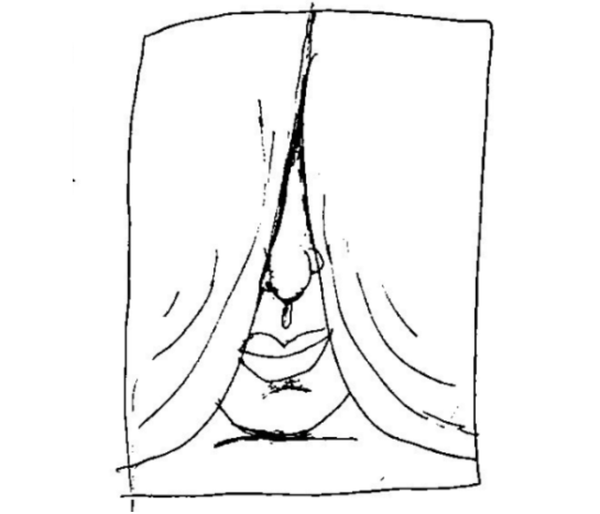Last week, the Cass Report, written by the pediatrician Hilary Cass at the request of England’s National Health Service, made waves by calling into question the medical justification for hormonal and surgical treatments of gender-dysphoric youth demanded by activist groups and embraced by the medical establishment. The report states that the use of puberty blockers and cross-sex hormones should be discontinued, not least because their long-term effects are unknown. Instead of taking narrow claims of dysphoria at face value, Cass adopts a holistic approach, arguing that such statements must be considered “within the context of poor mental health and emotional distress among the broader adolescent population.”
There is and will be major institutional and legal fallout to all this, as well as a feeling of relief (mixed with anger) on the part of all of us punished for dissenting from gender ideology. It feels like Britain is waking up from a collective bad dream. But how did any of these terrible and false ideas get taken seriously, let alone get played out, in many cases irreversibly, on the bodies of children? There are deep psychoanalytic questions here. First and foremost, how did the natural process of puberty—entering sexual maturity—become pathologized? How and why did medical professionals, not to mention unqualified people running pressure groups and charities, come to imagine that staving off adulthood through the use of dangerous drugs was the right response to childhood distress?
The desire to suppress puberty in children—who often have autism diagnoses, as Cass notes—must be understood in the context of a culture that is more broadly self-infantilizing. A culture that fetishizes youth but also safety. Did the parents who agreed to puberty blockers somehow want to protect their children from adulthood? Did they unconsciously feel that their children would be unable to handle the complexities of sexual life? Puberty is painful. For the first time, one is aware of other aspects of bodily and social existence that take time to adjust to. The opposite sex takes on a new meaning—sometimes an uncomfortable one. Menstruation is often shocking for girls, just as young men’s sexual feeling is frequently awkward and embarrassing.
Puberty is a time of deep insecurity, where one’s sense of self is scarcely in place, though desperately longed for. It is no wonder that young people cling to identities the way previous generations clung to bands and subcultural belonging. Young people copy each other (and what images they see) relentlessly, not least because they are looking for role models beyond their parents. A culture drenched in sexual imagery adds to the confusion, with many seeking—understandably—to remain outside of the loop of desire.
In 1996, René Girard wrote an essay titled “Eating Disorders and Mimetic Desire.” Many people have noted that the desire to identify as “trans”—much like eating disorders (the two in fact are often correlated, as Cass finds)—has a strong mimetic dimension. Entire groups of teenage girls suddenly start identifying as “boys” or as “nonbinary,” just as girls often emulate each other through starving and purging in their quest for competitive thinness. As Girard observed: “The compulsive dieters really want to be thin, and most of us are secretly aware of this, because most of us also want to be thin.”
We will never overcome envy and competitiveness, however much we deny these motives to ourselves. As Girard put it: “The process which has denied God first, then man, and finally even the individual, has not destroyed the competitive urge which, on the contrary, is becoming more and more intense.” The person who best conforms to the current ideology “wins.” In a post-prohibition world, in which limits are there to be ignored, transcended, or smashed in the name of individual freedom, this looks a lot like trying to be the most free (in this case, free of being something perceived to be as dull and restrictive as “male” or “female”). As Girard said: “The people with eating disorders are not the people with a religious hangover, the traditionalists and the fundamentalists, but the most ‘liberated.’”
“Standing behind the trans mania is a fear of adulthood and sexual difference.”
This kind of mimetic rivalry will escalate, which is perhaps why the earlier deviations from gender norms were deemed insufficient. The person who fully commits to extreme body modification is demonstrating superiority over others who only go so far as a haircut. Coupled with the hyperbolic use of language—the idea that not believing in gender ideology is akin to heresy; that refusing to use trans pronouns is a “hate crime,” or even that there is a “trans genocide” occurring—one can occupy the exalted role of “most socially desirable” and “most victimized” at the same time.
In a culture without customs to recognize and celebrate the natural shift between youth and adulthood, without religious narratives to make sense of them, humanity recreates ritual with a dark vengeance. “There is great irony in the fact that the modern process of stamping out religion produces countless caricatures of it,” Girard wrote. The attempt to provide a medical solution to a natural process must be seen not only in terms of the money to be made, but also in terms of what it says about our deeper collective state of mind. Standing behind the trans mania is a fear of adulthood and sexual difference.
If we are past the height of the fad, and the Cass report with its sober, reasonable tone prevails, there will need to be a reckoning at multiple levels of society. But a deeper reflection will involve coming to terms with why we can no longer bear to mature, and why accepting the sex we are has become so fraught.
